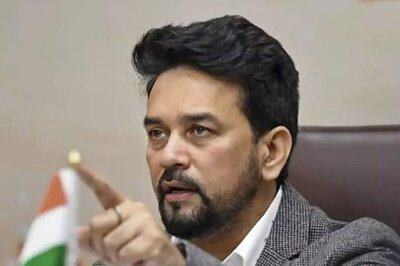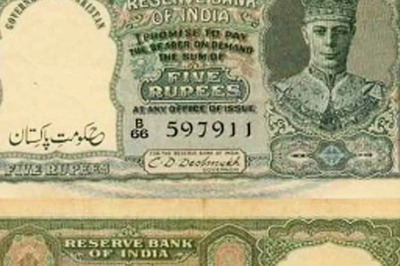
views
HYDERABAD: The voices behind the Right to Education seem to be new-age Chinese whispers where opinions are being sought in a mode of communication alien to those for whom the Act has been enacted. The eight-member committee, formed by the state government to formulate modalities for the implementation of the 25 per cent reservation for economically weaker sections (EWS) of the society under the Right to Education (RTE) Act, has invited suggestions through e-mail from stakeholders till May 20.Barring school management associations in the city, neither those whom the RTE is going to benefit nor those who have been working in the field know about the provision, let alone act on it.A resident of Patel Nagar, Tahira Begum is unaware of RTE, forget about sending suggestions to the panel via email.“My sister Rukhiya is planning to withdraw her children from a private school this year as she is unable to meet the demand for fees. Since her daughter is in first standard, she will probably enroll her in a government school,” says Tahira.The fee in this school is Rs 200 per month and no concessions ever come their way though the family has submitted income certificate a number of times to the school management.Syed Shahabuddin from Bazarghat and Udaya from Devarakonda Basti share a similar tale about their children.“I had to pay Rs 3000 to get all the necessary documents in place but even on submitting them to the school during admission of my children, I did not receive any relaxation in fee structure,” says Shahabuddin whose children study in a private school at Red Hills.“It is difficult to tell people that an Act exists for their benefit when it is not in implementation. Where I work, a large population works as daily wage labourers and telling them in passing will not help. Time and again, we have to revive the campaign and educate them about RTE. In such a scenario, making them think and question the Act is our main motive,” says Shaik Nayeem, a volunteer for the NGO Bhumi and has been campaigning for various issues including education in Rasoolpura area of the city.The lack of communication with important actors in the scheme has been a point of contention among well-informed parents as well as NGO representatives. “The least that can be done is to involve grassroots level workers for deliberations and inform them to voice their views. Even the school management committees (SMC) in government schools comprise a small group of people who know one another rather than someone who can contribute to the discussion. In fact, we can also convey the apprehensions and suggestions of parents about this important ruling,” says Nayeem.At present, the Rasoolpura slum houses five government schools and 20 private schools. Not all NGOs have been kept in the dark about the message though.“We have had discussions with the central and state governments time and again on the fine points of implementing the Act. Though we haven’t sent in any suggestions yet, I am sure the decisions will be taken drawing from the previous debates,” says Sunita Burra, state head for Pratham, which works extensively in the sector of school education.The procedure to cutdown on paper work and reduce the time taken for formulation of rules has led to a large number of stakeholders being left out of the loop, especially parents.“So far we have received 20 suggestions and we plan to sort them after the May 20 deadline. Discussions held with private school managements and others can last for indeterminate periods of time. Through e-mails we can take note of the suggestions and filter the ideas for implementation,” explains commissioner and director of school education, N Siva Sankar who is also the chairman of the eight-member committee.Parents who belong to the All India Parents’ Association (AIPA) are unaware of the provision.“After the stay obtained by schools in the city for implementation of RTE, we have not received any notifications. In fact, most of the private schools are conveniently switching to the international programmes which will exempt them from the regulations of RTE. However, will sending suggestions really help and will our views be considered?” questions Kavita Vemuri who has been an active member of AIPA.Absence of a direct exchange between the two ends of the spectrum is the cause of a brewing controversy and a lot of ambiguity.




















Comments
0 comment